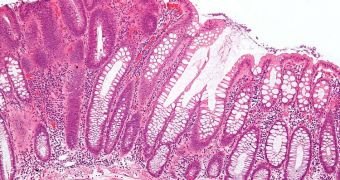One of the main things that separate cancerous cells from normal, healthy ones is the fact that they do not die according to signals that are sent naturally to them. Why this happens has been a mystery, but now scientists say that they may have finally found a clue in this regard.
A team of researchers managed to gain more insight into how cancer cells are able to resist the kill signals they receive. These cells have the ability to live and divide more than natural, which is what increases the risk of mutations in the first place.
If harmful mutations make them immune to kill signals, then all of their offspring would have the same ability. One of the main avenues of research in cancer studies has been determining a way to make the cells sensible to these signals again.
With the new study, that may just become possible, scientists say. A clear understanding of the mechanisms underlying cancer cells' resilience to death has been lacking thus far. What the team did was discover the pathways that are rewired when these cells get their new capabilities.
A detailed analysis of the results and methodologies used appears in the latest issue of the scientific journal Science Signaling. The work was led by research scientist David Litchfield, who is based at the University of Western Ontario (UWO).
Researchers at the RWTH Aachen University in Germany, led by expert Bernhard Luscher, also collaborated for the Canadian Institutes of Health Research-funded study.
“This work focused on understanding how cancer cells acquire a selective survival advantage, allowing them to avoid apoptosis, the process required for normal cell turnover and chemically-induced cell death,” explains Litchfield.
“Our work also provides encouragement for the development of novel therapeutic approaches that would prevent – or neutralize – this ‘rewiring’ to make sure that cancer cells respond to treatment,” the investigator adds.
Litchfield is the Chair of the Department of Biochemistry at UWO, and also a professor in the Schulich School of Medicine & Dentistry Department of Oncology at the university.

 14 DAY TRIAL //
14 DAY TRIAL //